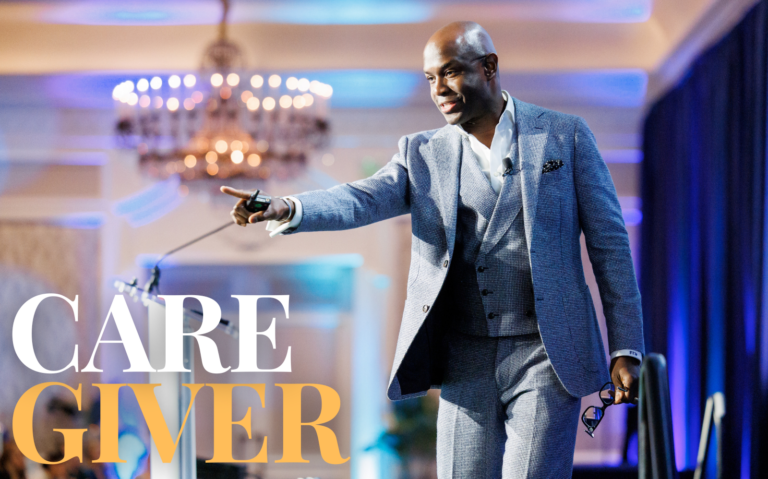
I Elevate
I elevate. I’m a people mover. I’m a potential seeker. I’m a dream encourager. I’m a career enhancer. I elevate. As an elevator… I listen
Share this post:
People don’t like to feel like they are a transaction. That is exactly how I felt when I recently rented a car. The rental car agent was fast and efficient. He spat out a series of standard car rental questions with laser-like proficiency. In fact, the entire transaction took less than three minutes. Speed = A+. Engagement = F. I remember walking away from the transaction saying “Wow, a robot could do that employee’s job”. It is important to note that people still like to feel like their patronage is valued. In that car rental example, I did not feel valued; actually, it was quite obvious that the attendant cared very little about making me feel valued. In his mind, it was “on to the next one”. To develop a strong service culture, we can never lose respect for the big “R”: RELATIONSHIP. People (especially customers) thrive off of relationships. Customers can easily tell if you are revenue-driven vs. relationship-driven. Even if the service transaction is a very quick one, it is still possible to establish a relationship which can lead to higher customer engagement, loyalty, referrals and repeat business.
Pay Attention to What Your Customers Care About
It is amazing to see how many organizations implement all sorts of initiatives, without checking to see if those initiatives are actually important to their customers. For example, I have heard stories of hotels ironing newspapers! Those organizations that get it right, however, make a habit of regularly soliciting insight from their customers about what can further strengthen their relationship.
I was in Wegman’s Supermarket recently and noticed the employees, who retrieve shopping carts from the parking lot, using a sanitary wipe to clean the carts’ handle bars. I would imagine that there are many customers who care about that. I was walking around Washington DC’s National Zoo recently during the summer, and there were water-misting stations strategically located throughout the zoo for patrons to get a quick cool-off. Customers care about that. I recently stayed at the Eventi hotel in New York City, and in my guest room closet there were not only the standard hotel slippers, but also socks. Socks! Some guests, like me, prefer socks than slippers because my feet tend to get cold.
It is critical to not fall into the habit of assuming that you currently know and will always know what your customers want. It doesn’t matter how many years you’ve been in your profession, or how many academic credentials you have. Your organization will only attain and maintain its competitive edge if it can accurately meet and exceed its customers’ expectation better than its competitors.
Be Inclusive
“I want you to know me, care about me, and make me feel like an insider”. That is the mantra of your loyal customers (and your potentially loyal customers). One of the biggest mistakes companies make is to reserve their loyal customer treatment for only current loyal customers. It’s as if only those customers who have proven that they will return again, will be rewarded with VIP treatment. Here’s a newsflash: If you want new customers to become loyal customers, then you have to treat them like loyal customers! I can certainly understand how some perks may only be available to long-term customers (or frequent buyers), but I’m referring to the sense of urgency and caring that are given.
On a recent trip, the airline gate attendant was getting ready to initiate the boarding process. She said something along the lines of, “Welcome to flight xxx. We are now ready to begin boarding. As always, we will board according to zones, and we value our elite customers.” In case you missed it, here is the last part again, “We Value Our ELITE Customers”. Now, I happen to be a so-called ELITE customer with this particular airline due to my frequent-flier status, but my first thought was…”don’t you value everyone else??” Again, the idea is to create more loyal customers by treating every customer like a loyal customer (or at least make them feel like you want them to be a loyal customer).
Feeling included also means that you accept your customers for who they are, and not minimize your service to them due to such things as their age, race, or (perceived) socio-economic status. Accepting your customers also means that you do and say things that will lift them up, and not bring them down. A friend of mine recently visited a spa to get a massage. When she visited the spa, however, she happened to be in the midst of an acne breakout. When the massage therapist came to the massage room, she told my friend, “Oh my goodness! You have lots of acne!”. #1) My friend already knew she had acne. #2) She felt embarrassed and self-conscious. Note: Customers should feel better as a result of interacting with you…not worse.
Be Appreciative and Grateful
What happens right after you provide a service or product to your customer? What about the day, week, or month after? You would be astonished to see how few companies have any type of standard regarding thanking their customers. Your customers just made a conscious decision to give you their business vs. giving it to another company. They should feel re-assured that their decision was the right one. In addition to verbally (and genuinely) thanking them for their business, consider doing the following within the first week after the service:
Then, four weeks after the service:
Your customers should eagerly rave about how wonderful your business is and how much they look forward to returning. This will only happen, however, if they feel like they are in a relationship with your business. I recently visited a friend’s house, and overheard him say to someone, “Yeah, we’ve been together since 1993.” I would have bet any amount of money that he was referring to a girlfriend. Not so, he was actually speaking about the consumer electronics company, Crutchfield. Wow. He absolutely loves Crutchfield. I have no doubt that if Crutchfield was a woman, he would propose immediately.
I firmly believe that customers would prefer to be loyal, rather than bouncing around from business to business. I even know people who begrudgingly tolerate mediocre service because they don’t have the patience to look elsewhere. As a business seeking ways to cultivate a loyal customer base, you should make your customers feel celebrated…rather than tolerated. Pay attention to what your customers care about, be inclusive, and be appreciative. If you make a habit of practicing those three tips, your relationships will thrive and the revenue will follow.

I elevate. I’m a people mover. I’m a potential seeker. I’m a dream encourager. I’m a career enhancer. I elevate. As an elevator… I listen

I have to admit, I don’t get upset too easily. It takes a lot to disturb the peace that I’ve worked hard to attain in